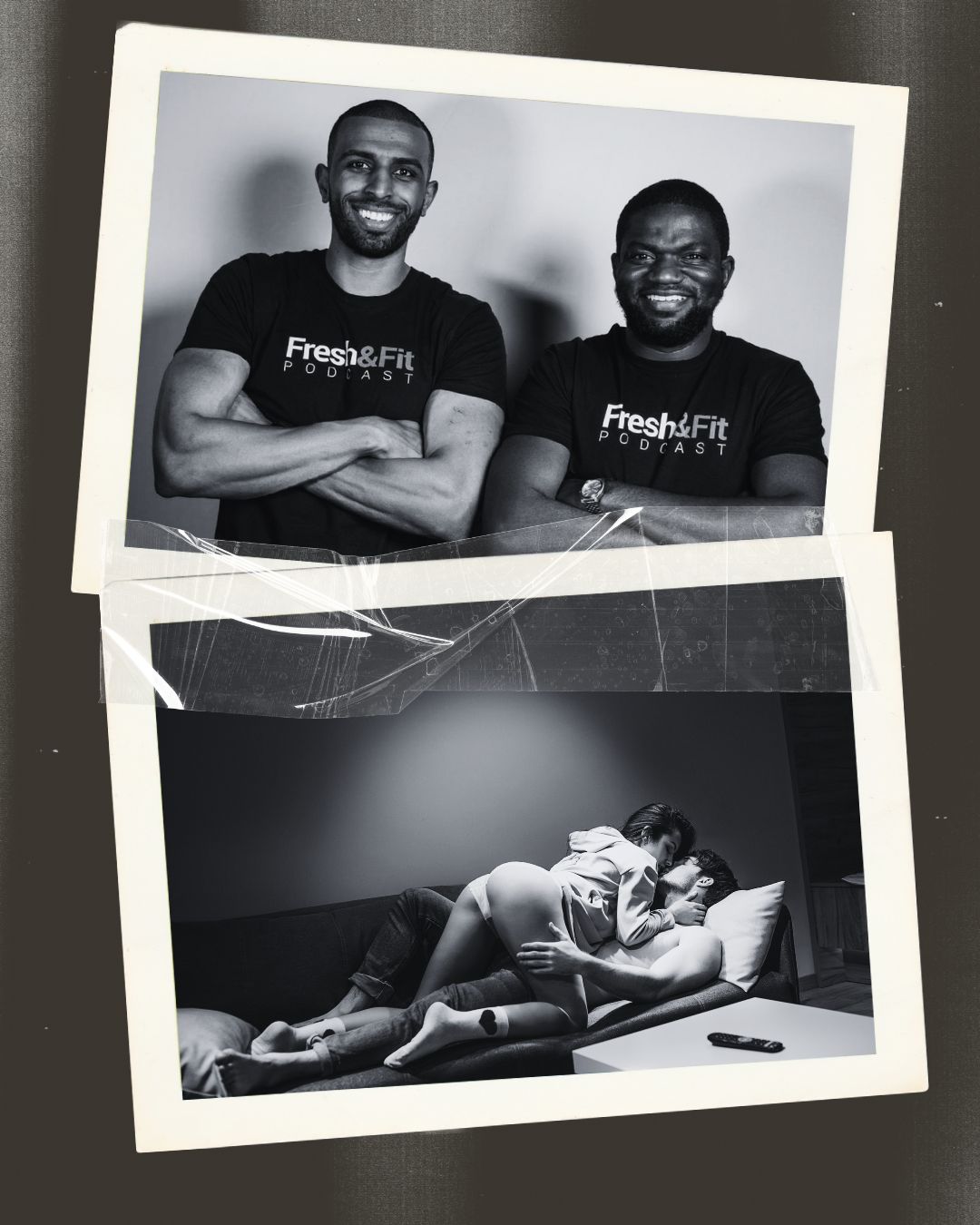Masculinity, Media, and Misunderstandings
In recent years, the question “Are men OK?” has become a popular meme online. It reflects a growing concern about male identity and societal roles. The emergence of male self-improvement podcasts like “Fresh and Fit” underscores the demand for content that addresses these pressing issues. This blog post delves into the controversies surrounding the podcast and their implications for modern masculinity and relationship dynamics.
The Rise of “Fresh and Fit” and Its Role in Modern Masculinity
Fresh and Fit, a podcast aimed at male self-improvement, has gained traction by discussing traditional and modern perspectives on masculinity. The podcast appeals to men who feel disconnected from their roles in today’s society. It provides a platform to explore and reaffirm their identity in the face of changing social norms.
However, this journey has not been without its controversies. The podcast often explores traditional ideas about relationships, which some critics argue can perpetuate misogynistic viewpoints. These controversies highlight the delicate balance the podcast navigates between advocating for personal development and clinging to outdated ideals.
Paradigm Shifts in Relationship Roles
We are witnessing a paradigm shift where traditional narratives of relationship structures and roles have remained stagnant, while society has evolved significantly. This mismatch has led to many young men feeling disenfranchised and many women feeling disillusioned by the idealism that once characterized societal roles.
Furthermore, this disconnection is exacerbated by the evolving expectations of relationships and individual roles within them. As a result, both parties struggle to find common ground. Podcasts like “Fresh and Fit” have risen in response, attempting to address these mismatches and provide guidance amidst the confusion.
Current Controversy: Allegations and Responses
Recently, Walter Weekes, co-host of “Fresh and Fit,” found himself at the center of a controversy. Daisy Chen, a friend with benefits, claims she became pregnant despite their mutual decision against having children. This has sparked a heated debate about responsibility and consent.
In response, the podcast’s reaction has been mixed. Weekes suggested the pregnancy was unplanned and unwanted, while co-host Myron Gaines defended the integrity of their platform. He also challenged the veracity of the claims. This situation has magnified the scrutiny on their personal lives, reflecting the broader challenges the podcast faces in maintaining credibility.
Hypocrisy and Accountability
The allegations have led to accusations of hypocrisy, particularly because the podcast promotes self-improvement and responsibility among men. The situation with Weekes contradicts the very principles he advocates, prompting listeners and critics alike to question the sincerity and consistency of the messages conveyed through “Fresh and Fit.”
The Broader Impact on YouTube and Online Platforms
The controversy has had tangible consequences, including the demonetization of the “Fresh and Fit” podcast by YouTube. This decision highlights the challenges content creators face when their content pushes the boundaries of what is deemed acceptable by mainstream platforms.
Additionally, the need for platforms that openly discuss men’s issues is critical, especially as societal shifts continue to redefine traditional roles. The demonetization of “Fresh and Fit” serves as a reminder of the delicate balance content creators must manage between fostering open discussion and adhering to platform guidelines.
The ongoing debate around the “Fresh and Fit” podcast highlights a critical intersection between evolving societal norms and traditional male roles. Digital platforms are continually reshaping how we discuss and perceive public issues, emphasizing the importance of dialogues that adapt to these changes. This evolution from a self-improvement platform to a focal point of controversy demonstrates the balance between personal beliefs and societal expectations that modern content creators must navigate.
A key takeaway from this situation is the need for caution when engaging in casual relationships, such as “situationships” or friends with benefits. These arrangements can often lead to miscommunication and unintended complications. If you find yourself in such a scenario, consider the following guidelines:
Communicate clearly about your intentions: Ensuring transparency from the start allows both parties to establish clear boundaries and address any discomfort early on. This approach helps avoid misunderstandings and unnecessary conflicts.
Disclose other relationships: Being upfront about other people you may be seeing is crucial. While it might be uncomfortable initially, honesty fosters trust and facilitates smoother transitions, whether deepening a relationship or moving in a different direction. Remember, emotional connections invariably carry an emotional toll.
Steer clear of ambiguity: Maintaining multiple intimate relationships can hinder personal growth and emotional stability within a relationship. Opting for clarity over ambiguity can spare you the burden of unresolved feelings and unfulfilled potential. Embrace simplicity in your relationships to live more freely.




